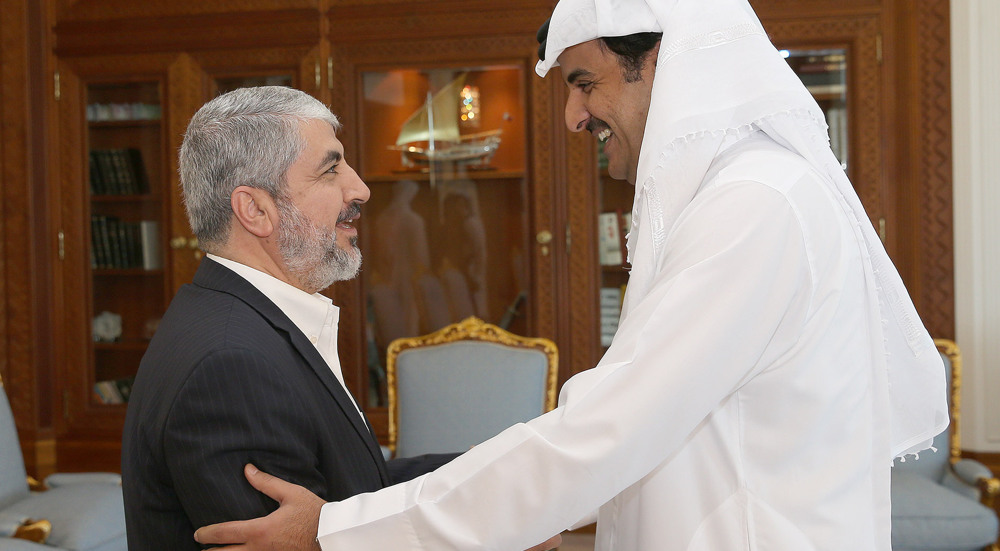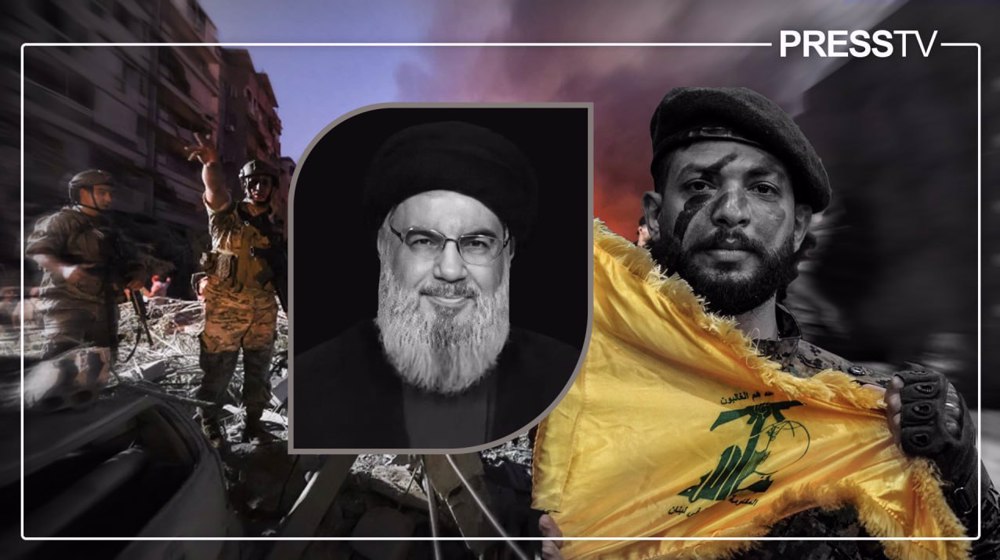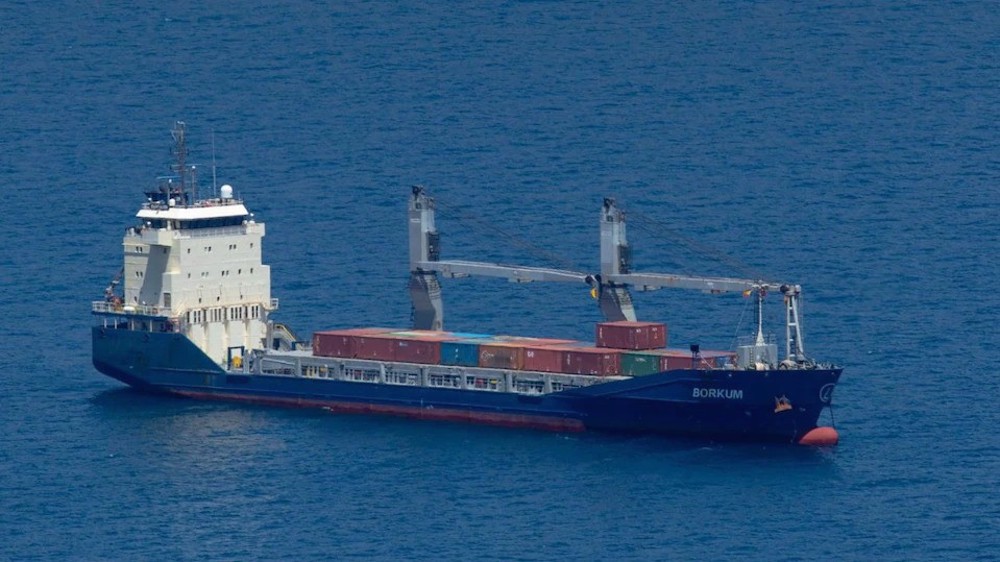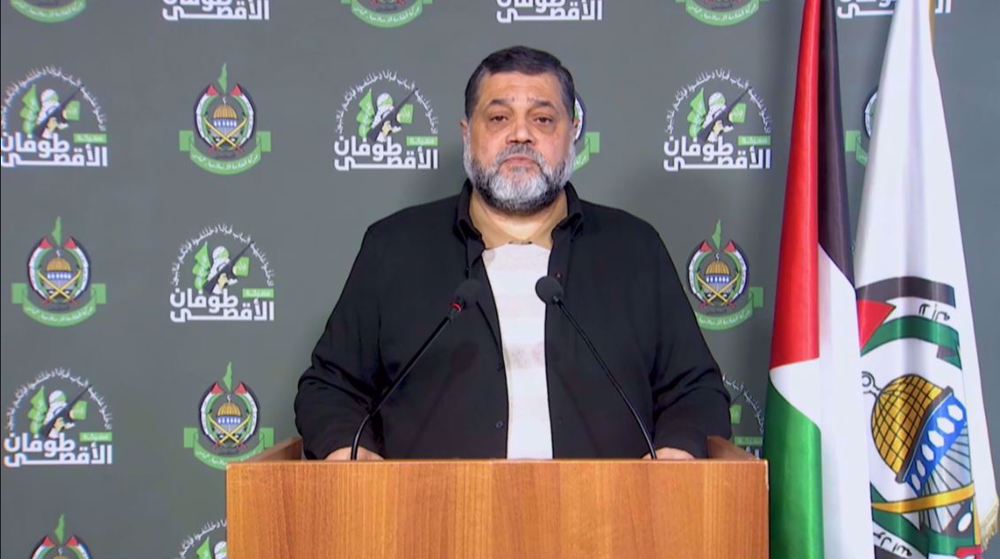Qatar: Reports about withdrawal from Gaza mediation, Hamas exit from Doha ‘inaccurate’
Qatar has rejected media reports alleging its withdrawal from efforts to end to the Israeli regime’s genocidal war against the Gaza Strip, besides dismissing allegations about Doha’s ordering Hamas leaders to leave the kingdom.
In a statement to the official Qatar News Agency (QNA) on Saturday, Qatari foreign ministry spokesman Majed bin Mohammed Al Ansari described reports about Doha’s departure from the mediation efforts as “inaccurate.”
He clarified his country’s standing on the matter by saying that Doha had notified the concerned parties 10 days ago during the last attempts to reach an agreement, “that it would stall its efforts to mediate between Hamas and Israel if an agreement was not reached in that round.”
“Qatar will resume those efforts with its partners when the parties show their willingness and seriousness to end the brutal war and the ongoing suffering of civilians caused by catastrophic humanitarian conditions in the Strip.”
“Qatar will then be at the forefront of making every good effort to end the war” and enable the return of Israeli captives and Palestinian prisoners, the official noted.
Al Ansari, meanwhile, denounced efforts at using the mediation as a reason for “blackmailing” Doha.
“We have witnessed manipulation since the collapse of the first pause and the women and children exchange deal, especially in retreating from obligations agreed upon through mediation, and exploiting the continuation of negotiations to justify the continuation of the war to serve narrow political purposes."
He reaffirmed Doha’s firm commitment to supporting Palestinians until they obtained all their rights.
The spokesman described the foremost of those rights as Palestinians’ entitlement to establishing their independent state based on the borders that existed before the Israeli regime’s Western-backed war of 1967, during which it occupied huge swathes of Palestinian territories.
Such a Palestinian state should have East al-Quds as its capital, Al Ansari added, stressing the “centrality” of the Palestinian issue to the State of Qatar.
He, meanwhile, dismissed media report claiming that Qatar had called on the leaders representing the Gaza-based Palestinian resistance movement Hamas to leave the country.
Describing those reports as “inaccurate,” the official said the main goal served by the movement’s office in Qatar was to be a channel of communication between concerned parties.
The channel has contributed to achieving a ceasefire in previous stages, and contributed to maintaining calm in the Strip and exchange of Israeli captives with Palestinian prisoners, he said.
Al Ansari, therefore, stressed that any reports on such matters rather obtain their information from the country’s official sources.
Pan-Arab media and Hamas officials have likewise denied reports that Qatari authorities had asked Hamas leaders to leave the kingdom following pressure from the United States.
Qatar's Al-Araby news outlet, citing informed sources, said Hamas has not been informed they are unwelcome in Doha.
Al-Araby said the information reported by several media outlets, including Reuters news agency, CNN television news network, and The Times of Israel online newspaper, is inaccurate.
The Palestinian Shehab news agency, citing an unnamed Hamas source, also dismissed allegations that his group has been ordered to leave Doha.
The source stated that the news about the expulsion of the Hamas leadership is incorrect and baseless, emphasizing that such fabricated reports are meant to cause confusion.
Additionally, Lebanon’s al-Mayadeen television news channel reported that the claims about Qatar’s decision to expel leaders of the Palestinian resistance movement are false.
“Reports circulated by Israeli media about Qatar’s position on Hamas that the group is unwelcome in Doha are incorrect,” al-Mayadeen quoted informed sources as saying.
An unnamed source asserted on Friday that Qatari officials instructed Hamas leaders over a week ago that they must close their diplomatic office in Doha following pressure from the US.
In a series of high-stakes communications, Washington has informed Qatari officials that the continued presence of representatives from the Gaza-based group in the Persian Gulf kingdom is no longer acceptable after the movement turned down initiatives aimed at a temporary truce in Gaza, the source claimed.
“After rejecting repeated proposals to release hostages, its leaders should no longer be welcome in the capitals of any American partner. We made that clear to Qatar following Hamas's rejection weeks ago,” a senior US administration official stated.
Despite the US urging, three Hamas officials have denied that Qatar formally demanded they leave.
On November 2, Izzat al-Rishq, a member of the Hamas’s Political Bureau, said the Palestinian resistance movement rejected the most recent proposals from mediators Egypt and Qatar for a short-term truce in Gaza as they were “misleading,” stating that the initiative did not include a lasting ceasefire.
He stated that the proposals put forward did not include conditions that the group considers essential, such as a permanent cessation of Israeli attacks, the withdrawal of the occupation forces from the Strip, and the return of the displaced to their areas.
“We engage positively with any proposals and ideas that guarantee an end to the aggression and the withdrawal of occupation troops from Gaza,” the Hamas official stated.
He noted that Israeli prime minister Benjamin Netanyahu is stalling the conclusion of a comprehensive and permanent ceasefire to buy time, and is using negotiations as a cover to continue his aggression against Palestinians in Gaza.
Since 2012, Qatar has housed Hamas’ political leaders in Doha as part of an agreement to facilitate negotiations, particularly during periods of intense conflict between Hamas and the Israeli regime.
Qatar’s long-standing role as a mediator has increasingly come under fire from US lawmakers.
Fourteen Republican US senators issued a letter to the Department of State on Friday, requesting that Washington immediately freeze the assets of Hamas officials residing in Qatar, extradite a number of top Hamas officials residing in the Persian Gulf country, and tell Qatar “to end its hospitality to Hamas’ senior leadership.
Egypt is likely to continue playing a mediating role, given the contacts that it maintains with Hamas leaders in bordering Gaza.
Israeli strikes kill 28 people in Lebanon
Hezbollah strikes major Israeli air force base for first time
Iran authorizes imports and sale of unleaded gasoline at free prices
Who said what about genocide in Gaza and Lebanon at OIC-Arab League summit?
More journalists killed by Israel in Gaza than in any conflict in recent decades: Report
Israeli attacks on Syria serious threat to regional stability: Iranian diplomat
Yemen carries out pre-emptive strike against US aircraft carrier
VIDEO | Trump: End wars or fuel them?





















 This makes it easy to access the Press TV website
This makes it easy to access the Press TV website